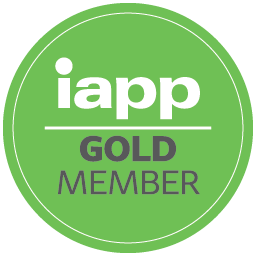Automated compliance software supports the compliance strategy within your organization and helps automate the process of adhering to the policies and controls within different industries.
For example, an automated compliance management software system helps streamline compliance with data privacy regulations such as the EU General Data Protection Regulation (GDPR) and the California Consumer Protection Act (CCPA).
Regardless of the industry, there are a few core capabilities to look for. Here are some common traits of an effective regulatory compliance system.
Different Deployment Options
When it comes to software deployment, each company has different needs. An on-premises solution is one that is hosted at your company’s location, whereas a cloud-based system is hosted in “the cloud” meaning it’s stored via the Internet rather than a hard drive.
The difference between the two comes down to preference and use. Those with an on-premises solution often use their internal IT team for updates and maintenance, whereas a cloud-based system puts maintenance in your service providers hands.
A cloud-based compliance software system also provides data privacy and security like an on-premises solution does, by using different security methods like encryption, permissions, and authenticity.
Those currently looking to move to a cloud-based solution from an on-premises system have options for doing so. Talk to your service provider to find out how you can make the switch and what it entails for you.
Automated Change Management Process
Change is a necessary aspect of any business. It’s what helps you improve your processes and makes you stand out from your competitors. It can also be extremely difficult if you don’t have the tools to do it right.
Change is complex but having an automated compliance system helps ease the process.
A compliance system can automate the process of making changes to policies or processes so you don’t have to track these changes manually and risk the chance of human error.
By automating the way you make changes you’ll be able to ensure that any changes made to your policies and processes were done right and will help move your business forward in a positive way. Any changes will be trained on by the proper employees to ensure compliance across your entire enterprise.
Automated Reporting
To ensure that your business is meeting its goals, a reporting process is necessary. However, Excel spreadsheets that are manually updated do little to improve your compliance process.
Instead, look for a system with automated reporting capability to help you quickly see any overdue or pending tasks, and risk and compliance data. This will help you track your regulatory tasks as well to ensure compliance is being met on time and within parameters.
An automated reporting tool will generate reports at the click of a button, making it easier to see accurate reports quickly.
These reports will show you a complete view of any potential risks, will save time and ensure a process that is repeatable and manageable.
Risk Management Capability
To keep your business in compliance, you’ll need to monitor and address all risks. Automated risk management tools allow you to monitor risk in all areas of your enterprise, see risk levels, assign mitigation tasks and keep the process documented.
These tools will also help you be proactive in mitigating risk in your processes and policies by providing visibility into high-risk areas.
Task Management
A good compliance management software system should include task management capability that promotes collaboration and enables you to manage your companies compliance activities, policies, projects and more.
Automating your task management process with compliance software will help you improve overall performance by keeping your company organized and able to meet deadlines. It also improves accountability by allowing you to see which tasks are assigned to each employee and escalating tasks that are overdue so they get completed.
Tips for Finding the Best System for Your Business
Now that you know some of the capabilities of a compliance management software system and what to look for, there are a few things to keep in mind before selecting a system.
Before you can make changes to your existing processes you must first determine exactly where your current processes are lacking and how you can make them better.
To do this, you’ll need to audit your current processes. This will help you see which compliance issues are the most pressing (for example, improving data privacy or reducing risk in processes) and will bring insight into any potential problems your business is facing that will need to be addressed.
It’s important to address this step of the process with the entire company, within every department, so nothing is overlooked.
You’ll want to look into what your company is currently doing and why it’s not working and what traits in the compliance management system will help improve any outdated processes. This will give you insight into what compliance management solutions are most critical for your business.
Reaping the Benefits of Compliance Management Software
A good compliance management software system will help reduce the stress, time and costs of the tasks that go into complying with regulatory requirements and adhering to data privacy laws. An effective solution will provide real-time updates and data so there is no lag time in internal changes that everyone needs to be updated and trained on.
Automated compliance software takes manual processes out of the equation so you can drastically reduce the chance of human error and ensure you meet strict regulation deadlines.
But don’t take our word for it, see for yourself how your company can benefit from automated subject access request compliance management. Sign up for a demo and learn how we can help you improve your compliance management processes today.
{{cta(‘2ccc56a6-17f1-463e-b39a-e1ca02b0a934’)}}
About Ale Johnson
Ale Johnson is the Marketing Manager at Truyo.
Recent Posts




























